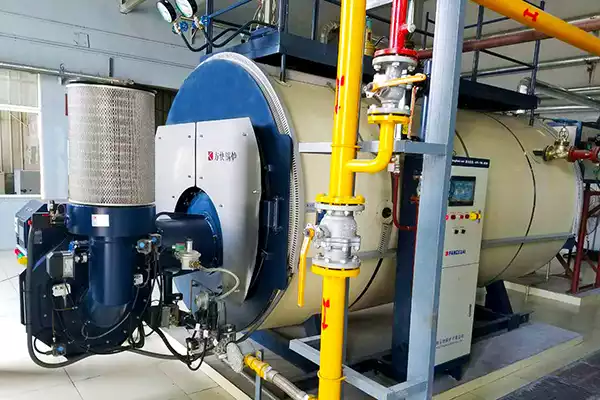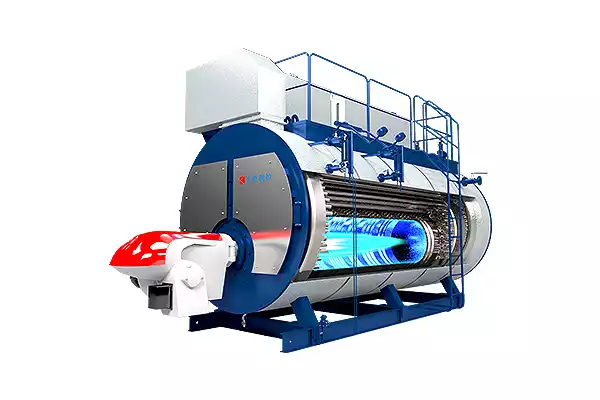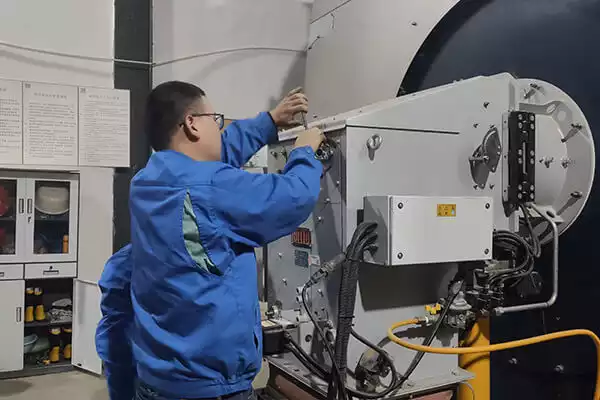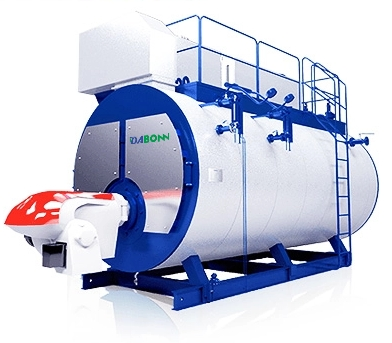
Introduction
For many homeowners, especially those living in rural or off-grid areas, an oil boiler is the preferred choice for heating. While natural gas boilers are common in urban areas, oil boilers remain a popular option where natural gas lines are unavailable.
What Is an Oil Boiler?
An oil boiler is a type of central heating system that uses oil as its fuel to generate heat for domestic purposes. This heating system is particularly common in areas without access to a natural gas grid. The basic principle behind an oil boiler is similar to that of other boilers, where a fuel source is burned to generate heat, which is then transferred to water or air to provide heating throughout a home.
Oil boilers are typically categorized into three main types:
Conventional Boilers (Regular Boilers): These are traditional boilers that use a separate hot water cylinder and cold water tank. They are ideal for larger homes with multiple bathrooms.
System Boilers: System boilers are similar to conventional boilers but do not require a cold water tank. They are designed to work with a hot water cylinder, making them suitable for homes with more than one bathroom.
Combi Boilers: Combi (combination) boilers provide both heating and hot water on demand without the need for a separate hot water cylinder or cold water tank. They are compact and perfect for smaller homes with limited space.
How Does an Oil Boiler Work?
The operation of an oil boiler involves several key components working together to provide heating and hot water for a home. Here’s a step-by-step explanation of how an oil boiler works:
Fuel Delivery: The process begins with the delivery of heating oil to a storage tank located on the property. This tank can be situated above or below ground, depending on the homeowner’s preference and available space.
Ignition: When the thermostat detects a drop in temperature and calls for heat, the oil boiler’s burner is activated. The burner draws oil from the storage tank and sprays it into the combustion chamber as a fine mist. At the same time, air is mixed with the oil to create an optimal air-fuel mixture for combustion.
Combustion: The air-oil mixture is ignited within the combustion chamber, creating a high-temperature flame. The intense heat generated by this combustion is transferred to a heat exchanger.
Heat Transfer: The heat exchanger absorbs the heat from the combustion process and transfers it to water or air, depending on the system. In water-based systems, the heated water is circulated through radiators, underfloor heating, or a hot water cylinder. In air-based systems, the heated air is distributed throughout the home via ductwork.
Heat Distribution: The heated water or air is circulated throughout the home, raising the temperature to the desired level. Once the thermostat detects that the target temperature has been reached, the boiler shuts off until more heat is needed.
Exhaust: The byproducts of combustion, including carbon dioxide and water vapor, are expelled from the boiler through a flue or chimney, ensuring that the indoor air remains safe and free from harmful gases.
Advantages and Disadvantages of Oil Boilers
Advantages:
- High Efficiency: Modern oil boilers can achieve up to 95% efficiency, reducing energy waste and heating costs.
- Reliable Heat: Ideal for homes in remote areas without natural gas access.
- Fuel Independence: Homeowners can control their fuel supply, often saving money by purchasing oil during low-demand periods.
- Long Lifespan: With proper maintenance, oil boilers can last 15 to 25 years.
- Versatile Installation: Suitable for various settings, including off-grid properties.
Disadvantages:
- High Initial Cost: The upfront expense, including installation and storage tank, is substantial.
- Fuel Storage: Requires an on-site tank, which needs space and regular refilling.
- Environmental Impact: Produces more CO2 than natural gas, with potential risks of spills.
- Fluctuating Prices: Heating oil costs can vary due to global oil market changes.
- Regular Maintenance: Annual servicing is necessary for safe, efficient operation.
Lifespan of an Oil Boiler
The longevity of an oil boiler depends on various factors, including the quality of the unit, the frequency of use, and the level of maintenance it receives. On average, a well-maintained oil boiler can last between 15 to 25 years. Regular maintenance is crucial for extending the life of the boiler, as it helps prevent minor issues from escalating into costly repairs or replacements.
Key maintenance tasks include:
Annual Servicing: Having the boiler serviced by a qualified technician each year ensures that the burner, heat exchanger, and other components are clean and functioning correctly.
Fuel Quality: Using high-quality heating oil can prevent clogs and buildup in the burner and heat exchanger, reducing wear and tear on the system.
Regular Inspections: Periodic inspections of the oil storage tank, fuel lines, and flue system help identify potential problems before they cause damage to the boiler.
Prompt Repairs: Addressing any issues, such as leaks or unusual noises, as soon as they arise can prevent further damage and extend the boiler’s lifespan.
Cost to Install a New Oil Boiler
The cost of an oil boiler will vary depending on the size, type, and brand of boiler you choose. The table below is some cost details for different sizes of oil fired boilers.
| Boiler Size | Main Body Cost | Installation Cost | Repair Cost | Maintenance Cost | Service Cost |
|---|---|---|---|---|---|
| 50-70k BTU | $2,000-$3,500 | $1,500-$3,000 | $150-$500 | $150-$300 | $100-$200 |
| 70-90k BTU | $3,000-$5,000 | $2,000-$4,000 | $200-$600 | $200-$400 | $150-$250 |
| 90-120k BTU | $5,000-$10,000 | $3,000-$5,000 | $300-$800 | $300-$500 | $200-$300 |
Leading Oil Boiler Manufacturers
When selecting an oil boiler, choosing a reputable manufacturer is essential for ensuring reliability, efficiency, and longevity. Several manufacturers are recognized for producing high-quality oil boilers:
Weil-McLain: A well-known American brand, Weil-McLain offers a range of residential and commercial oil boilers known for their durability and energy efficiency.
Burnham by U.S. Boiler: Burnham’s oil boilers are popular in North America for their robust construction and advanced features, making them a reliable choice for homeowners.
Peerless Boilers: Peerless offers a variety of oil boilers suitable for both residential and commercial applications. They are known for their efficient performance and long-lasting durability.
Grant Engineering: Based in the United Kingdom, Grant Engineering is a leading manufacturer of high-efficiency oil boilers. Their products are widely recognized for their innovation and environmental friendliness.
Buderus: Part of the Bosch Group, Buderus offers a range of high-performance oil boilers with advanced controls and efficient operation. Their products are designed to meet the heating needs of modern homes.
Conclusion
Installing an oil boiler is a significant investment, but for many homeowners, it is the best option for reliable and efficient heating. While the initial costs can be high, the long-term benefits, including high efficiency, fuel independence, and a long lifespan, make oil boilers a viable choice for homes, especially in areas without access to natural gas. By carefully considering the type of boiler, obtaining multiple installation quotes, and choosing a reputable boiler manufacturer, homeowners can ensure that their oil boiler provides warmth and comfort for many years to come.
Get your best price
Quickly compare 3 FREE quotes
- Engineer quick quote
- The overall delivery speed is fast
- Financial choice
- Low installation costs and cost savings
25 years+ of boiler R&D
More than 20 innovative technologies


